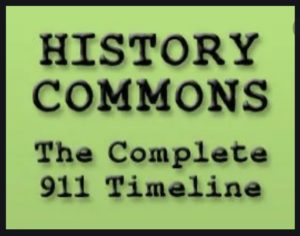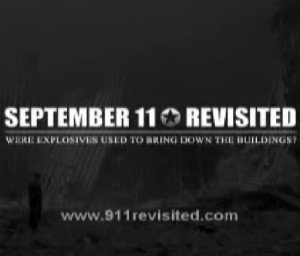Twenty-Five Ways To Suppress Truth: The Rules of Disinformation
by H. Michael Sweeney
copyright (c) 1997, 2000, 2001 All rights reserved (Edited June 2001)
Permission to reprint/distribute hereby granted for any non commercial use provided information reproduced in its entirety and with author information in tact. For more Intel/Shadow government related info, visit the Author’s Web site.
 Built upon Thirteen Techniques for Truth Suppression by David Martin, the following may be useful to the initiate in the world of dealing with veiled and half-truth, lies, and suppression of truth when serious crimes are studied in public forums. This, sadly, includes every day news media, one of the worst offenders with respect to being a source of disinformation. Where the crime involves a conspiracy, or a conspiracy to cover up the crime, there will invariably be a disinformation campaign launched against those seeking to uncover and expose the truth and/or the conspiracy. There are specific tactics which disinfo artists tend to apply, as revealed here. Also included with this material are seven common traits of the disinfo artist which may also prove useful in identifying players and motives. The more a particular party fits the traits and is guilty of following the rules, the more likely they are a professional disinfo artist with a vested motive. People can be bought, threatened, or blackmailed into providing disinformation, so even “good guys” can be suspect in many cases.
Built upon Thirteen Techniques for Truth Suppression by David Martin, the following may be useful to the initiate in the world of dealing with veiled and half-truth, lies, and suppression of truth when serious crimes are studied in public forums. This, sadly, includes every day news media, one of the worst offenders with respect to being a source of disinformation. Where the crime involves a conspiracy, or a conspiracy to cover up the crime, there will invariably be a disinformation campaign launched against those seeking to uncover and expose the truth and/or the conspiracy. There are specific tactics which disinfo artists tend to apply, as revealed here. Also included with this material are seven common traits of the disinfo artist which may also prove useful in identifying players and motives. The more a particular party fits the traits and is guilty of following the rules, the more likely they are a professional disinfo artist with a vested motive. People can be bought, threatened, or blackmailed into providing disinformation, so even “good guys” can be suspect in many cases.
A rational person participating as one interested in the truth will evaluate that chain of evidence and conclude either that the links are solid and conclusive, that one or more links are weak and need further development before conclusion can be arrived at, or that one or more links can be broken, usually invalidating (but not necessarily so, if parallel links already exist or can be found, or if a particular link was merely supportive, but not in itself key) the argument. The game is played by raising issues which either strengthen or weaken (preferably to the point of breaking) these links. It is the job of a disinfo artist to interfere with these evaluation… to at least make people think the links are weak or broken when, in truth, they are not… or to propose alternative solutions leading away from the truth. Often, by simply impeding and slowing down the process through disinformation tactics, a level of victory is assured because apathy increases with time and rhetoric.
It would seem true in almost every instance, that if one cannot break the chain of evidence for a given solution, revelation of truth has won out. If the chain is broken either a new link must be forged, or a whole new chain developed, or the solution is invalid an a new one must be found… but truth still wins out. There is no shame in being the creator or supporter of a failed solution, chain, or link, if done with honesty in search of the truth. This is the rational approach. While it is understandable that a person can become emotionally involved with a particular side of a given issue, it is really unimportant who wins, as long as truth wins. But the disinfo artist will seek to emotionalize and chastise any failure (real or false claims thereof), and will seek by means of intimidation to prevent discussion in general.
It is the disinfo artist and those who may pull their strings (those who stand to suffer should the crime be solved) MUST seek to prevent rational and complete examination of any chain of evidence which would hang them. Since fact and truth seldom fall on their own, they must be overcome with lies and deceit. Those who are professional in the art of lies and deceit, such as the intelligence community and the professional criminal (often the same people or at least working together), tend to apply fairly well defined and observable tools in this process. However, the public at large is not well armed against such weapons, and is often easily led astray by these time-proven tactics. Remarkably, not even media and law enforcement have NOT BEEN TRAINED to deal with these issues. For the most part, only the players themselves understand the rules of the game.
This why concepts from the film, Wag-The-Dog, actually work. If you saw that movie, know that there is at least one real-world counterpart to Al Pacino’s character. For CIA, it is Mark Richards, who was called in to orchestrate the media response to Waco on behalf of Janet Reno. Mark Richards is the acknowledged High Priest of Disinformation. His appointment was extremely appropriate, since the CIA was VERY present at Waco from the very beginning of the cult to the very end of their days – just as it was at the People’s Temple in Jonestown. Richards purpose in life is damage control.
Subscribe to The Professional Paranoid Newsletter
Twenty-Five Rules of Disinformation
1. Hear no evil, see no evil, speak no evil
2. Become incredulous and indignant
3. Create rumor mongers
4. Use a straw man
5. Sidetrack opponents w name calling, ridicule
6. Hit and Run
7. Question motives
8. Invoke authority
9. Play Dumb
10. Associate opponent charges with old news
11. Establish and rely upon fall-back positions
12. Enigmas have no solution
13. Alice in Wonderland Logic
14. Demand complete solutions
15. Fit the facts to alternate conclusions
16. Vanish evidence and witnesses
17. Change the subject
18. Emotionalize, Antagonize, and Goad
19. Ignore facts, demand impossible proofs
20. False evidence
21. Call a Grand Jury, Special Prosecutor
22. Manufacture a new truth
23. Create bigger distractions
24. Silence critics
25. Vanish
Eight Traits of The Disinformationalist
1. Avoidance
2. Selectivity
3. Coincidental
4. Teamwork
5. Anti-conspiratorial
6. Artificial Emotions
7. Inconsistent
8. Newly Discovered: Time Constant
For such disinformationalists, the overall aim is to avoid discussing links in the chain of evidence which cannot be broken by truth, but at all times, to use clever deceptions or lies to make select links seem weaker than they are, create the illusion of a break, or better still, cause any who are considering the chain to be distracted in any number of ways, including the method of questioning the credentials of the presenter. Please understand that fact is fact, regardless of the source. Likewise, truth is truth, regardless of the source. This is why criminals are allowed to testify against other criminals. Where a motive to lie may truly exist, only actual evidence that the testimony itself IS a lie renders it completely invalid. Were a known ‘liar’s’ testimony to stand on its own without supporting fact, it might certainly be of questionable value, but if the testimony (argument) is based on verifiable or otherwise demonstrable facts, it matters not who does the presenting or what their motives are, or if they have lied in the past or even if motivated to lie in this instance — the facts or links would and should stand or fall on their own merit and their part in the matter will merely be supportive.
Moreover, particularly with respects to public forums such as newspaper letters to the editor, and Internet chat and news groups, the disinfo type has a very important role. In these forums, the principle topics of discussion are generally attempts by individuals to cause other persons to become interested in their own particular position, idea, or solution — very much in development at the time. People often use such mediums as a sounding board and in hopes of pollination to better form their ideas. Where such ideas are critical of government or powerful, vested groups (especially if their criminality is the topic), the disinfo artist has yet another role — the role of nipping it in the bud. They also seek to stage the concept, the presenter, and any supporters as less than credible should any possible future confrontation in more public forums result due to their early successes. You can often spot the disinfo types at work here by the unique application of “higher standards” of discussion than necessarily warranted. They will demand that those presenting arguments or concepts back everything up with the same level of expertise as a professor, researcher, or investigative writer. Anything less renders any discussion meaningless and unworthy in their opinion, and anyone who disagrees is obviously stupid — and they generally put it in exactly those terms.
So, as you read any such discussions, particularly so in Internet news groups (NG), decide for yourself when a rational argument is being applied and when disinformation, psyops (psychological warfare operations) or trickery is the tool. Accuse those guilty of the later freely. They (both those deliberately seeking to lead you astray, and those who are simply foolish or misguided thinkers) generally run for cover when thus illuminated, or — put in other terms, they put up or shut up (a perfectly acceptable outcome either way, since truth is the goal.) Here are the twenty-five methods and seven traits, some of which don’t apply directly to NG application. Each contains a simple example in the form of actual (some paraphrased for simplicity) from NG comments on commonly known historical events, and a proper response. Accusations should not be overused — reserve for repeat offenders and those who use multiple tactics. Responses should avoid falling into emotional traps or informational sidetracks, unless it is feared that some observers will be easily dissuaded by the trickery. Consider quoting the complete rule rather than simply citing it, as others will not have reference. Offer to provide a complete copy of the rule set upon request (see permissions statement at end):
Twenty-Five Rules of Disinformation
Note: The first rule and last five (or six, depending on situation) rules are generally not directly within the ability of the traditional disinfo artist to apply. These rules are generally used more directly by those at the leadership, key players, or planning level of the criminal conspiracy or conspiracy to cover up.
1. Hear no evil, see no evil, speak no evil. Regardless of what you know, don’t discuss it — especially if you are a public figure, news anchor, etc. If it’s not reported, it didn’t happen, and you never have to deal with the issues.
Example: Media was present in the courtroom (Hunt vs. Liberty Lobby) when CIA agent Marita Lorenz ‘confession’ testimony regarding CIA direct participation in the planning and assassination of John Kennedy was revealed. All media reported was that E. Howard Hunt lost his libel case against Liberty Lobby (Liberty Lobby’s newspaper, The Spotlight, had reported Hunt was in Dallas that day and were sued for the story). See Mark Lane’s remarkable book, Plausible Denial, for the full confessional transcript.
Proper response: There is no possible response unless you are aware of the material and can make it public yourself.. In any such attempt, be certain to target any known silent party as likely complicit in a cover up. In this case, it would be the entire Time-Warner Media Group, among others. This author is relatively certain that reporters were hand-picked to cover this case from among those having intelligence community ties.
2. Become incredulous and indignant. Avoid discussing key issues and instead focus on side issues which can be used show the topic as being critical of some otherwise sacrosanct group or theme. This is also known as the ‘How dare you!’ gambit.
Example: ‘How dare you suggest that the Branch Davidians were murdered! the FBI and BATF are made up of America’s finest and best trained law enforcement, operate under the strictest of legal requirements, and are under the finest leadership the President could want to appoint.’
Proper response: You are avoiding the Waco issue with disinformation tactics. Your high opinion of FBI is not founded in fact. All you need do is examine Ruby Ridge and any number of other examples, and you will see a pattern of abuse of power that demands attention to charges against FBI/BATF at Waco. Why do you refuse to address the issues with disinformation tactics (rule 2 – become incredulous and indignant)?
3. Create rumor mongers. Avoid discussing issues by describing all charges, regardless of venue or evidence, as mere rumors and wild accusations. Other derogatory terms mutually exclusive of truth may work as well. This method which works especially well with a silent press, because the only way the public can learn of the facts are through such ‘arguable rumors’. If you can associate the material with the Internet, use this fact to certify it a ‘wild rumor’ from a ‘bunch of kids on the Internet’ which can have no basis in fact.
‘You can’t prove his material was legitimately from French Intelligence. Pierre Salinger had a chance to show his ‘proof’ that flight 800 was brought down by friendly fire, and he didn’t. All he really had was the same old baseless rumor that’s been floating around the Internet for months.’
Proper response: You are avoiding the issue with disinformation tactics. The Internet charge reported widely is based on a single FBI interview statement to media and a similar statement by a Congressman, neither of which had actually seen Pierre’s document. As the FBI is being accused in participating in a cover up of this matter and Pierre claims his material is not Internet sourced, it is natural that FBI would have reason to paint his material in a negative light. For you to assume the FBI to have no bias in the face of Salinger’s credentials and unchanged stance suggests you are biased. At the best you can say the matter is in question. Further, to imply that material found on Internet is worthless is not founded. At best you may say it must be considered carefully before accepting it, which will require addressing the actual issues. Why do you refuse to address these issues with disinformation tactics (rule 3 – create rumor mongers)?
4. Use a straw man. Find or create a seeming element of your opponent’s argument which you can easily knock down to make yourself look good and the opponent to look bad. Either make up an issue you may safely imply exists based on your interpretation of the opponent/opponent arguments/situation, or select the weakest aspect of the weakest charges. Amplify their significance and destroy them in a way which appears to debunk all the charges, real and fabricated alike, while actually avoiding discussion of the real issues.
Example: When trying to defeat reports by the Times of London that spy-sat images reveal an object racing towards and striking flight 800, a straw man is used. The disinformationalist, later identified as having worked for Naval Intelligence, simply stated: ‘If these images exist, the public has not seen them. Why? They don’t exist, and never did. You have no evidence and thus, your entire case falls flat.’
Proper response: ‘You are avoiding the issue with disinformation tactics. You imply deceit and deliberately establish an impossible and unwarranted test. It is perfectly natural that the public has not seen them, nor will they for some considerable time, if ever. To produce them would violate national security with respect to intelligence gathering capabilities and limitations, and you should know this. Why do you refuse to address the issues with such disinformation tactics (rule 4 – use a straw man)?’
5. Sidetrack opponents with name calling and ridicule. This is also known as the primary ‘attack the messenger’ ploy, though other methods qualify as variants of that approach. Associate opponents with unpopular titles such as ‘kooks’, ‘right-wing’, ‘liberal’, ‘left-wing’, ‘terrorists’, ‘conspiracy buffs’, ‘radicals’, ‘militia’, ‘racists’, ‘religious fanatics’, ‘sexual deviates’, and so forth. This makes others shrink from support out of fear of gaining the same label, and you avoid dealing with issues.
Example: ‘You believe what you read in the Spotlight? The Publisher, Willis DeCarto, is a well-known right-wing racist. I guess we know your politics — does your Bible have a swastika on it? That certainly explains why you support this wild-eyed, right-wing conspiracy theory.’
Proper response: ‘You are avoiding the issue with disinformation tactics. Your imply guilt by association and attack truth on the basis of the messenger. The Spotlight is well known Populist media source responsible for releasing facts and stories well before mainstream media will discuss the issues through their veil of silence. Willis DeCarto has successfully handled lawsuits regarding slanderous statements such as yours. Your undemonstrated charges against the messenger have nothing to do with the facts or the issues, and fly in the face of reason. Why do you refuse to address the issues by use of such disinformation tactics (rule 5 – sidetrack opponents with name calling and ridicule)?’
6. Hit and Run. In any public forum, make a brief attack of your opponent or the opponent position and then scamper off before an answer can be fielded, or simply ignore any answer. This works extremely well in Internet and letters-to-the-editor environments where a steady stream of new identities can be called upon without having to explain criticism reasoning — simply make an accusation or other attack, never discussing issues, and never answering any subsequent response, for that would dignify the opponent’s viewpoint.
Example: ”This stuff is garbage. Where do you conspiracy lunatics come up with this crap? I hope you all get run over by black helicopters.’ Notice it even has a farewell sound to it, so it won’t seem curious if the author is never heard from again.
Proper response: ‘You are avoiding the issue with disinformation tactics. Your comments or opinions fail to offer any meaningful dialog or information, and are worthless except to pander to emotionalism, and in fact, reveal you to be emotionally insecure with these matters. If you do not like reading ‘this crap’, why do you frequent this NG which is clearly for the purpose of such discussion? Why do you refuse to address the issues by use of such disinformation tactics (rule 6 – hit and run)?’
7. Question motives. Twist or amplify any fact which could be taken to imply that the opponent operates out of a hidden personal agenda or other bias. This avoids discussing issues and forces the accuser on the defensive.
Example: ‘With the talk-show circuit and the book deal, it looks like you can make a pretty good living spreading lies.’
Proper response: ‘You are avoiding the issue with disinformation tactics. Your imply guilt as a means of attacking the messenger or his credentials, but cowardly fail to offer any concrete evidence that this is so. If you think what has been presented are ‘lies’, why not simply so illustrate? Why do you refuse to address the issues by use of such disinformation tactics (rule 6 – question motives)?’
8. Invoke authority. Claim for yourself or associate yourself with authority and present your argument with enough ‘jargon’ and ‘minutia’ to illustrate you are ‘one who knows’, and simply say it isn’t so without discussing issues or demonstrating concretely why or citing sources.
‘You obviously know nothing about either the politics or strategic considerations, much less the technicals of the SR-71. Incidentally, for those who might care, that sleek plane is started with a pair of souped up big-block V-8’s (originally, Buick 454 C.I.D. with dual 450 CFM Holly Carbs and a full-race Isky cams — for 850 combined BHP @ 6,500 RPM) using a dragster-style clutch with direct-drive shaft. Anyway, I can tell you with confidence that no Blackbird has ever been flown by Korean nationals nor have they ever been trained to fly it, and have certainly never overflown the Republic of China in a SR or even launched a drone from it that flew over China. I’m not authorized to discuss if there have been overflights by American pilots.’
Proper response: ‘You are avoiding the issue with disinformation tactics. Your imply your own authority and expertise but fail to provide credentials, and you also fail to address issues and cite sources. You simply cite ‘Jane’s-like’ information to make us think you know what you are talking about. Why do you refuse to address the issues by use of such disinformation tactics (rule 8 – invoke authority)?’
9. Play Dumb. No matter what evidence or logical argument is offered, avoid discussing issues except with denials they have any credibility, make any sense, provide any proof, contain or make a point, have logic, or support a conclusion. Mix well for maximum effect.
Example: ‘Nothing you say makes any sense. Your logic is idiotic. Your facts nonexistent. Better go back to the drawing board and try again.’
Proper response: ‘You are avoiding the issue with disinformation tactics. You evade the issues with your own form of nonsense while others, perhaps more intelligent than you pretend to be, have no trouble with the material. Why do you refuse to address the issues by use of such disinformation tactics (rule 9 – play dumb)?’
10. Associate opponent charges with old news. A derivative of the straw man — usually, in any large-scale matter of high visibility, someone will make charges early on which can be or were already easily dealt with – a kind of investment for the future should the matter not be so easily contained.) Where it can be foreseen, have your own side raise a straw man issue and have it dealt with early on as part of the initial contingency plans. Subsequent charges, regardless of validity or new ground uncovered, can usually then be associated with the original charge and dismissed as simply being a rehash without need to address current issues — so much the better where the opponent is or was involved with the original source.
Example: ‘Flight 553’s crash was pilot error, according to the NTSB findings. Digging up new witnesses who say the CIA brought it down at a selected spot and were waiting for it with 50 agents won’t revive that old dead horse buried by NTSB more than twenty years ago.’
Proper response: ‘You are avoiding the issue with disinformation tactics. Your ignore the issues and imply they are old charges as if new information is irrelevant to truth. Why do you refuse to address the issues by use of such disinformation tactics (rule 10 – associate charges with old news)?’
11. Establish and rely upon fall-back positions. Using a minor matter or element of the facts, take the ‘high road’ and ‘confess’ with candor that some innocent mistake, in hindsight, was made — but that opponents have seized on the opportunity to blow it all out of proportion and imply greater criminalities which, ‘just isn’t so.’ Others can reinforce this on your behalf, later, and even publicly ‘call for an end to the nonsense’ because you have already ‘done the right thing.’ Done properly, this can garner sympathy and respect for ‘coming clean’ and ‘owning up’ to your mistakes without addressing more serious issues.
Example: ‘Reno admitted in hindsight she should have taken more time to question the data provided by subordinates on the deadliness of CS-4 and the likely Davidian response to its use, but she was so concerned about the children that she elected, in what she now believes was a sad and terrible mistake, to order the tear gas be used.’
Proper response: ‘You are avoiding the issue with disinformation tactics. Your evade the true issue by focusing on a side issue in an attempt to evoke sympathy. Perhaps you did not know that CIA Public Relations expert Mark Richards was called in to help Janet Reno with the Waco aftermath response? How warm and fuzzy it makes us feel, so much so that we are to ignore more important matters being discussed. Why do you refuse to address the issues by use of such disinformation tactics (rule 11 – establish and rely upon fall-back positions)?’
12. Enigmas have no solution. Drawing upon the overall umbrella of events surrounding the crime and the multitude of players and events, paint the entire affair as too complex to solve. This causes those otherwise following the matter to begin to loose interest more quickly without having to address the actual issues.
Example: ‘I don’t see how you can claim Vince Foster was murdered since you can’t prove a motive. Before you could do that, you would have to completely solve the whole controversy over everything that went on in the White House and in Arkansas, and even then, you would have to know a heck of a lot more about what went on within the NSA, the Travel Office, and the secret Grand Jury, and on, and on, and on. It’s hopeless. Give it up.’
Proper response: ‘You are avoiding the issue with disinformation tactics. Your completely evade issues and attempt others from daring to attempt it by making it a much bigger mountain than necessary. You eat an elephant one bite at a time. Why do you refuse to address the issues by use of such disinformation tactics (rule 12 – enigmas have no solution)?’
13. Alice in Wonderland Logic. Avoid discussion of the issues by reasoning backwards or with an apparent deductive logic which forbears any actual material fact.
Example: ‘The news media operates in a fiercely competitive market where stories are gold. This means they dig, dig, dig for the story — often doing a better job than law enforcement. If there was any evidence that BATF had prior knowledge of the Oklahoma City bombing, they would surely have uncovered it and reported it. They haven’t reported it, so there can’t have been any prior knowledge. Put up or shut up.’
Proper response: ‘You are avoiding the issue with disinformation tactics. Your backwards logic does not work here. Has media reported CIA killed Kennedy when they knew it? No, despite their presence at a courtroom testimony ‘confession’ by CIA operative Marita Lornez in a liable trial between E. Howard Hunt and Liberty Lobby, they only told us the trial verdict. THAT, would have been the biggest story of the Century, but they didn’t print it, did they? Why do you refuse to address the issues by use of such disinformation tactics (rule 13 – Alice in Wonderland logic)?’
14. Demand complete solutions. Avoid the issues by requiring opponents to solve the crime at hand completely, a ploy which works best with issues qualifying for rule 10.
Example: ‘Since you know so much, if James Earl Ray is as innocent as you claim, who really killed Martin Luther King, how was it planned and executed, how did they frame Ray and fool the FBI, and why?’
Proper response: You are avoiding the issue with disinformation tactics. It is not necessary to completely resolve any full matter in order to examine any relative attached issue. Discussion of any evidence of Ray’s innocence can stand alone to serve truth, and any alternative solution to the crime, while it may bolster that truth, can also stand alone. Why do you refuse to address the issues by use of such disinformation tactics (rule 14 – demand complete solutions)?
15. Fit the facts to alternate conclusions. This requires creative thinking unless the crime was planned with contingency conclusions in place.
Example: ‘The cargo door failed on Flight 800 and caused a catastrophic breakup which ruptured the fuel tank and caused it to explode.’
Proper response: The best definitive example of avoiding issues by this technique is, perhaps, Arlan Specter’s Magic Bullet from the Warren Report. This was eloquently defeated in court but media blindly accepted it without challenge. Thus rewarded, disinformationalists do not shrink from its application, even though today, thanks in part to the movie, JFK, most Americans do now understand it was fabricated nonsense. Thus the defense which works best may actually be to cite the Magic Bullet. ‘You are avoiding the issue with disinformation tactics. Your imaginative twisting of facts rivals that of Arlan Specter’s Magic Bullet in the Warren Report. We all know why the impossible magic bullet was invented. You invent a cargo door problem when there has been not one shred of evidence from the crash investigation to support it, and in fact, actual photos of the cargo door hinges and locks disprove you. Why do you refuse to address the issues by use of such disinformation tactics (rule 15 – fit facts to an alternate conclusion)?’
16. Vanish evidence and witnesses. If it does not exist, it is not fact, and you won’t have to address the issue.
Example: ‘You can’t say Paisley is still alive… that his death was faked and the list of CIA agents found on his boat deliberately placed there to support a purge at CIA. You have no proof. Why can’t you accept the Police reports?’ This is a good ploy, since the dental records and autopsy report showing his body was two inches too long and the teeth weren’t his were lost right after his wife demanded inquiry, and since his body was cremated before she could view it — all that remains are the Police Reports. Handy.
Proper response: There is no suitable response to actual vanished materials or persons, unless you can shed light on the matter, particularly if you can tie the event to a cover up other criminality. However, with respect to dialog where it is used against the discussion, you can respond… ‘You are avoiding the issue with disinformation tactics. The best you can say is that the matter is in contention ONLY because of highly suspicious matters such as the simultaneous and mysterious vanishing of three sets of evidence. The suspicious nature itself tends to support the primary allegation. Why do you refuse to address the remaining issues by use of such disinformation tactics (rule 16 – vanish evidence and witnesses)?’
17. Change the subject. Usually in connection with one of the other ploys listed here, find a way to side-track the discussion with abrasive or controversial comments in hopes of turning attention to a new, more manageable topic. This works especially well with companions who can ‘argue’ with you over the new topic and polarize the discussion arena in order to avoid discussing more key issues.
Example: ‘There were no CIA drugs and was no drug money laundering through Mena, Arkansas, and certainly, there was no Bill Clinton knowledge of it because it simply didn’t happen. This is merely an attempt by his opponents to put Clinton off balance and at a disadvantage in the election: Dole is such a weak candidate with nothing to offer that they are desperate to come up with something to swing the polls. Dole simply has no real platform.’ Assistant’s response. ‘You idiot! Dole has the clearest vision of what’s wrong with Government since McGovern. Clinton is only interested in raping the economy, the environment, and every woman he can get his hands on…’ One naturally feels compelled, regardless of party of choice, to jump in defensively on that one…
Proper response: ‘You are both avoiding the issue with disinformation tactics. Your evade discussion of the issues by attempting to sidetrack us with an emotional response to a new topic — a trap which we will not fall into willingly. If you truly believe such political rhetoric, please drop out of this discussion, as it is not germane, and take it to one of the more appropriate politics NGs. Why do you refuse to address the issues by use of such disinformation tactics (rule 17- change the subject)?’
18. Emotionalize, Antagonize, and Goad Opponents. If you can’t do anything else, chide and taunt your opponents and draw them into emotional responses which will tend to make them look foolish and overly motivated, and generally render their material somewhat less coherent. Not only will you avoid discussing the issues in the first instance, but even if their emotional response addresses the issue, you can further avoid the issues by then focusing on how ‘sensitive they are to criticism.’
Example: ‘You are such an idiot to think that possible — or are you such a paranoid conspiracy buff that you think the ‘gubment’ is cooking your pea-brained skull with microwaves, which is the only justification you might have for dreaming up this drivel.’ After a drawing an emotional response: ‘Ohhh… I do seem to have touched a sensitive nerve. Tsk, tsk. What’s the matter? The truth too hot for you to handle? Perhaps you should stop relying on the Psychic Friends Network and see a psychiatrist for some real professional help…’
Proper response: ‘You are avoiding the issue with disinformation tactics. You attempt to draw me into emotional response without discussion of the issues. If you have something useful to contribute which defeats my argument, let’s here it — preferably without snide and unwarranted personal attacks, if you can manage to avoid sinking so low. Your useless rhetoric serves no purpose here if that is all you can manage. Why do you refuse to address the issues by use of such disinformation tactics (rule 18 – emotionalize, antagonize, and goad opponents)?’
19. Ignore proof presented, demand impossible proofs. This is perhaps a variant of the ‘play dumb’ rule. Regardless of what material may be presented by an opponent in public forums, claim the material irrelevant and demand proof that is impossible for the opponent to come by (it may exist, but not be at his disposal, or it may be something which is known to be safely destroyed or withheld, such as a murder weapon.) In order to completely avoid discussing issues, it may be required that you to categorically deny and be critical of media or books as valid sources, deny that witnesses are acceptable, or even deny that statements made by government or other authorities have any meaning or relevance.
Example: ‘All he’s done is to quote the liberal media and a bunch of witnesses who aren’t qualified. Where’s his proof? Show me wreckage from flight 800 that shows a missile hit it!’
Proper response: ‘You are avoiding the issue with disinformation tactics. You presume for us not to accept Don Phillips, reporter for the Washington Post, Al Baker, Craig Gordon or Liam Pleven, reporters for Newsday, Matthew Purdy or Matthew L. Wald, Don Van Natta Jr., reporters for the New York Times, or Pat Milton, wire reporter for the Associated Press — as being able to tell us anything useful about the facts in this matter. Neither would you allow us to accept Robert E. Francis, Vice Chairman of the NTSB, Joseph Cantamessa Jr., Special Agent In Charge of the New York Office of the F.B.I., Dr. Charles Wetli, Suffolk County Medical Examiner, the Pathologist examining the bodies, nor unnamed Navy divers, crash investigators, or other cited officials, including Boeing Aircraft representatives a part of the crash investigative team — as a qualified party in this matter, and thus, dismisses this material out of hand. Good logic, — about as good as saying 150 eye witnesses aren’t qualified. Then you demand us to produce evidence which you know is not accessible to us, evidence held by FBI, whom we accuse of cover up. Thus, only YOU are qualified to tell us what to believe? Witnesses be damned? Radar tracks be damned? Satellite tracks be damned? Reporters be damned? Photographs be damned? Government statements be damned? Is there a pattern here?. Why do you refuse to address the issues by use of such disinformation tactics (rule 19 – ignore proof presented, demand impossible proofs)?’
20. False evidence. Whenever possible, introduce new facts or clues designed and manufactured to conflict with opponent presentations — as useful tools to neutralize sensitive issues or impede resolution. This works best when the crime was designed with contingencies for the purpose, and the facts cannot be easily separated from the fabrications.
Example: Jack Ruby warned the Warren Commission that the white Russian separatists, the Solidarists, were involved in the assassination. This was a handy ‘confession’, since Jack and Earl were both on the same team in terms of the cover up, and since it is now known that Jack worked directly with CIA in the assassination (see below.)
Proper response: This one can be difficult to respond to unless you see it clearly, such as in the following example, where more is known today than earlier in time… ‘You are avoiding the issue with disinformation tactics. Your information is known to have been designed to side track this issue. As revealed by CIA operative Marita Lorenz under oath offered in court in E. Howard Hunt vs. Liberty Lobby, CIA operatives E. Howard Hunt, James McCord, and others, met with Jack Ruby in Dallas the night before the assassination of JFK to distribute guns and money. Clearly, Ruby was a coconspirator whose ‘Solidarist confession’ was meant to sidetrack any serious investigation of the murder AWAY from CIA. Why do you refuse to address the issues by use of such disinformation tactics (rule 20 – false evidence)?’
21. Call a Grand Jury, Special Prosecutor, or other empowered investigative body. Subvert the (process) to your benefit and effectively neutralize all sensitive issues without open discussion. Once convened, the evidence and testimony are required to be secret when properly handled. For instance, if you own the prosecuting attorney, it can insure a Grand Jury hears no useful evidence and that the evidence is sealed an unavailable to subsequent investigators. Once a favorable verdict is achieved, the matter can be considered officially closed. Usually, this technique is applied to find the guilty innocent, but it can also be used to obtain charges when seeking to frame a victim.
Example: According to one OK bombing Federal Grand Juror who violated the law to speak the truth, jurors were, contrary to law, denied the power of subpoena of witness of their choosing, denied the power of asking witnesses questions of their choosing, and relegated to hearing only evidence prosecution wished them to hear, evidence which clearly seemed fraudulent and intended to paint conclusions other than facts actually suggested.
Proper response: There is usually no adequate response to this tactic except to complain loudly at any sign of its application, particularly with respect to any possible cover up. This happened locally in Oklahoma, and as a result, a new Grand Jury has been called to rehear evidence that government officials knew in advance that the bombing was going to take place, and a number of new facts which indicate it was impossible for Timothy McVeigh to have done the deed without access to extremely advanced explosive devices such as available ONLY to the military or intelligence community, such as CIA’s METC technology. Media has refused to cover the new Oklahoma Grand Jury process, by they way.
22. Manufacture a new truth. Create your own expert(s), group(s), author(s), leader(s) or influence existing ones willing to forge new ground via scientific, investigative, or social research or testimony which concludes favorably. In this way, if you must actually address issues, you can do so authoritatively.
Example: The False Memory Syndrome Foundation and American Family Foundation and American and Canadian Psychiatric Associations fall into this category, as their founding members and/or leadership include key persons associated with CIA Mind Control research. Read The Professional Paranoid or Phsychic Dictatorship in the U.S.A. by Alex Constantine for more information. Not so curious, then, that (in a perhaps oversimplified explanation here) these organizations focus on, by means of their own “research findings”, that there is no such thing as Mind Control.
Proper response: Unless you are in a position to be well versed in the topic and know of the background and relationships involved in the opponent organization, you are not well equipped to fight this tactic.
23. Create bigger distractions. If the above does not seem to be working to distract from sensitive issues, or to prevent unwanted media coverage of unstoppable events such as trials, create bigger news stories (or treat them as such) to distract the multitudes.
Example: To distract the public over the progress of a WTC bombing trial that seems to be uncovering nasty ties to the intelligence community, have an endless discussion of skaters whacking other skaters on the knee. To distract the public over the progress of the Waco trials that have the potential to reveal government sponsored murder, have an O.J. summer. To distract the public over an ever disintegrating McVeigh trial situation and the danger of exposing government involvements, come up with something else (Flight 800?) to talk about — or, keeping in the sports theme, how about sports fans shooting referees and players during a game and the focusing on the whole gun control thing?
Proper response: The best you can do is attempt to keep public debate and interest in the true issues alive and point out that the ‘news flap’ or other evasive tactic serves the interests of your opponents.
24. Silence critics. If the above methods do not prevail, consider removing opponents from circulation by some definitive solution so that the need to address issues is removed entirely. This can be by their death, arrest and detention, blackmail or destruction of their character by release of blackmail information, or merely by destroying them financially, emotionally, or severely damaging their health.
Example: As experienced by certain proponents of friendly fire theories with respect to flight 800 — send in FBI agents to intimidate and threaten that if they persisted further they would be subject to charges of aiding and abetting Iranian terrorists, of failing to register as a foreign agents, or any other trumped up charges. If this doesn’t work, you can always plant drugs and bust them.
Proper response: You have three defensive alternatives if you think yourself potential victim of this ploy. One is to stand and fight regardless. Another is to create for yourself an insurance policy which will point to your opponents in the event of any unpleasantness, a matter which requires superior intelligence information on your opponents and great care in execution to avoid dangerous pitfalls (see The Professional Paranoid by this author for suggestions on how this might be done). The last alternative is to cave in or run (same thing.)
25. Vanish. If you are a key holder of secrets or otherwise overly illuminated and you think the heat is getting too hot, to avoid the issues, vacate the kitchen.
Example: Do a Robert Vesco and retire to the Caribbean. If you don’t, somebody in your organization may choose to vanish you the way of Vince Foster or Ron Brown.
Proper response: You will likely not have a means to attack this method, except to focus on the vanishing in hopes of uncovering it was by foul play or deceit as part of a deliberate cover up.



























